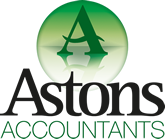Tax Planning – Rules for Companies
Home / Astons Accountants / Tax Planning – Rules for Companies

Tax Planning – Rules for Companies
When it comes to tax planning, running a limited company is a tax efficient way to deal with your income.
However, it is important to stick to certain rules so that HMRC can easily see that you work for your limited company, and not for one of your customers!
Here are some important tips to help avoid being caught by the IR35 legislation;
- When making a ‘linked-in’ profile, remember to show that you are a Director of your limited company, not that you hold a position within your customer’s company.
- When having business cards and stationary printed, again remember you are a Director of your limited company.
- Businesses need to promote themselves in order to win new business and new contracts, so advertising costs should be part of the company’s regular expenditure.
- If possible, you should avoid using a ‘work’ email address – you should be contacted via an email account that your company uses rather than an address tied in with your customer’s company.
- Keep documentation relating to any bad debts that your company has incurred (correspondence as well as the sales invoices to be written off).
- Make sure the company has its own bank account, it is important not to receive the company’s money in your personal bank account.
- Send invoices prior to receiving payment, showing the payment terms that you have negotiated with your customer – keep copies of all sales invoices on file.
- All businesses should consider having Professional Indemnity Insurance and having this insurance is a distinction between your company and an employee.
- If the company has business premises separate to the customer’s office and the director’s home address, this helps to show that the company is independent.
This article is a general one that should be useful to anyone with a limited company, however for more specific advice you should contact us directly.

